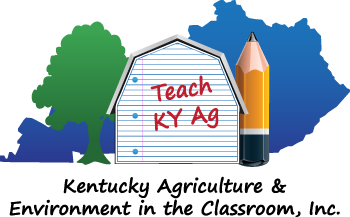Connecting Agriculture with the Community
The following is a commentary from Warren Beeler, Executive Director of the Governor's Office of Ag Policy. GOAP is the administrator of the Kentucky Agricultural Development Board, which has granted funds to our programming for the past four years. We thank him for the mention!
After finishing a wonderful Kentucky State Fair, I must congratulate the Kentucky State Fair Board and David Beck for the positive changes made in highlighting agriculture.
I continue to receive emails and calls about how magnificent AgLand was in the south wing along with the Champion Drive that spotlighted so many young people with their livestock projects. Change can be hard with many detractors, but this year’s changes put the emphasis back on agriculture and kids.
I raised my kids showing livestock at the fair. I only wish they could have experienced what those 60+ junior exhibitors felt at the Champion Drive.
Displaying agriculture is what we must do to reconnect with the public. In agriculture, we do a great job of farming but we do a pitiful job of telling people about it. I have heard Commissioner Quarles say that 40 percent of the public think that chocolate milk comes from brown cows. We must do more to tell our story.
That said, Kentucky currently has quite a handful of wonderful agricultural education projects. For example, Kentucky Agriculture and Environment in the Classroom is so valuable to the future of our industry because it teaches agricultural literacy and points out where our food comes from.
Jennifer Elwell is an amazing teacher with a passion and expertise to incorporate agriculture into a myriad of lesson plans. The Kentucky Department of Agriculture’s three mobile classroom trailers bring a farm field trip right to the steps of the school.
Daniel and Danielle Hayden’s new poultry educational center in Ohio County opens the door so the public can see that we are producing agricultural products at the highest level, all while being great stewards of the land, water and animals.
In Daviess County, Suzanne White’s Cecil Farms is making efforts to teach horticulture from seed to retail. These are all ventures to communicate where our food comes from and the methods required in producing, processing and selling.
I recently visited the Frazier History Museum in downtown Louisville. I was delighted to witness most of the third floor dedicated to the evolution of agriculture as related to bourbon.
Downtown Louisville is a great place to reconnect the public with agriculture. While we have wonderful projects like these mentioned, it is not enough. We need more people telling our story clearly and convincingly as we grow, adapt and change in agriculture. A wonderful project that is doing this is the Kentucky Agricultural Leadership Program, which graduates 20 outstanding spokespersons for Kentucky ag every three years.
Most of these projects mentioned are funded in part with the tobacco settlement funds. Just another avenue where these funds are working proactively for Kentucky Agriculture.
Our message is this – we are doing agriculture better than any time in history and in large part the tobacco settlement fund have been the seed for investment and improvement. We are producing more with less, achieving outstanding yields and at the same time improving soil texture, fertility and health.
We are utilizing water as the most important ingredient in life by monitoring, conserving and networking quality and quantity. Right now, our livestock are genetically and nutritionally improved and animal comfort and care is at the highest levels ever.
We have never done agriculture so well and yet we learn something every day that requires us to adapt or change. Our problem is that no one knows this but us. We have to do better telling our story.

